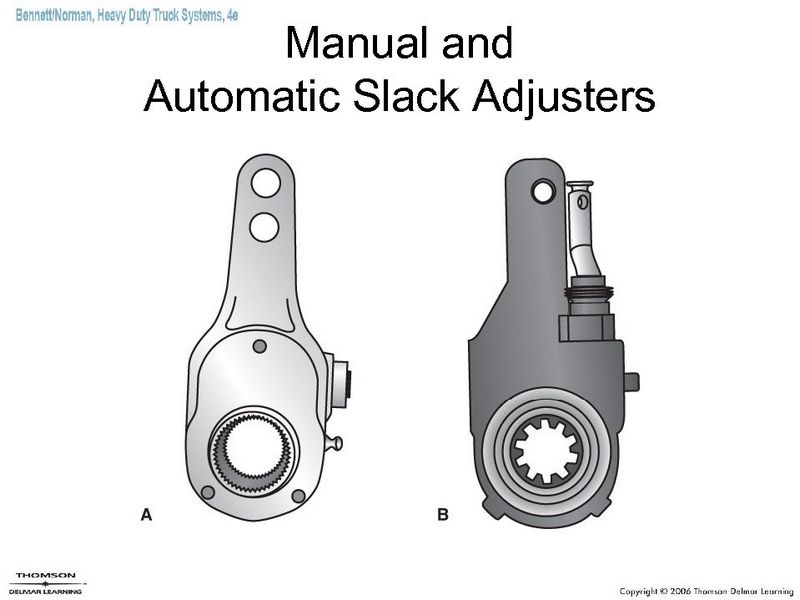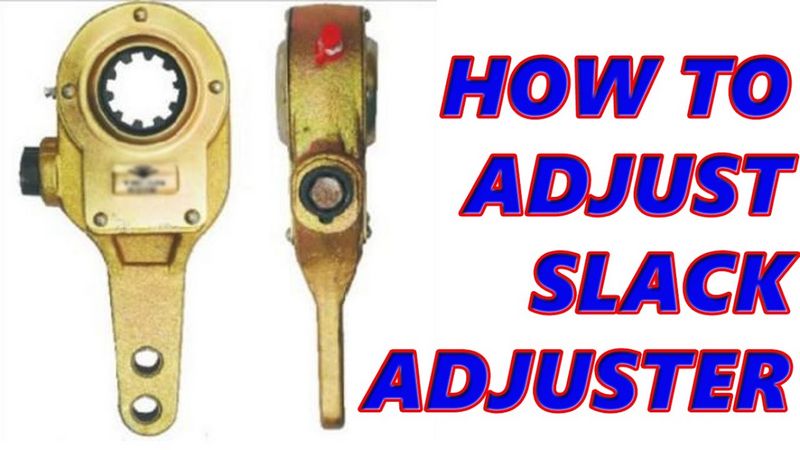
Understanding the Different Types of Adjusters: Home vs. Auto vs. Personal.
When it comes to insurance claims, it is important to understand the different types of adjusters that may be involved. Home, auto, and personal adjusters each have their own specialized areas of expertise and focus.
Home adjusters are responsible for assessing property damage and determining the cost of repairs or replacement. They work closely with homeowners and insurance companies to ensure that claims are handled fairly and accurately. These adjusters have a deep understanding of construction, building codes, and the value of different types of property.
Auto adjusters specialize in evaluating damage to vehicles and calculating the cost of repairs. They often work for insurance companies or third-party agencies and must have a strong knowledge of automobile mechanics and repair costs. Auto adjusters are skilled at negotiating with body shops and other service providers to ensure that repairs are completed efficiently and at a reasonable cost.
Personal adjusters, also known as claims adjusters, handle a wide range of insurance claims that are not specific to a particular type of property. They may work on cases involving personal injury claims, liability claims, or other types of property damage. Personal adjusters must have a thorough understanding of insurance policies and legal procedures to properly evaluate claims and ensure fair compensation for policyholders.
In conclusion, understanding the different types of adjusters is crucial when navigating the insurance claims process. Whether you are dealing with damage to your home, vehicle, or personal property, it is important to work with an adjuster who specializes in that specific area. By doing so, you can ensure that your claim is handled efficiently and that you receive the compensation you are entitled to.
What Are Adjusters?
When it comes to home, auto, and personal insurance claims, adjusters play a vital role in the process. Adjusters are professionals who are trained to evaluate and assess damages or losses for insurance purposes. They work on behalf of insurance companies to investigate, analyze, and determine the appropriate amount of compensation that policyholders are entitled to.
Home adjusters specialize in assessing and valuing damages or losses related to properties. They inspect the damage caused by events like fires, storms, or burglaries, and estimate the repair costs accordingly. Home adjusters ensure that the claims made by homeowners are accurate and consistent with the terms and conditions of the insurance policy.
Auto adjusters, on the other hand, focus on damages or losses related to vehicles. They evaluate the extent of damage caused by accidents, vandalism, or natural disasters. Auto adjusters work closely with mechanics, body shops, and other professionals to estimate the repair costs and authorize the payment of claims.
Personal adjusters handle claims that involve personal belongings, such as jewelry, electronics, or furniture. They assess the value of the items and investigate any damages or losses. Personal adjusters ensure that policyholders receive fair compensation for their belongings.
Understanding the different types of adjusters is crucial for policyholders as it allows them to navigate through the insurance claims process. By knowing who is responsible for assessing their specific types of damages, policyholders can effectively communicate and negotiate with adjusters to ensure a fair outcome.
The Role of Adjusters
Understanding the different types of adjusters, such as home, auto, and personal adjusters, is crucial when it comes to dealing with insurance claims. Whether you have experienced damage to your home, car, or personal belongings, adjusters play a vital role in determining the coverage and compensation you are entitled to.
Auto adjusters specialize in assessing and evaluating damage to vehicles. They are responsible for investigating the circumstances of an accident, inspecting the damage to the car, and determining the cost of repairs or replacement. These adjusters work closely with car owners, repair shops, and insurance companies to review claims and ensure fair compensation.
Home adjusters, on the other hand, focus on property damage claims. Their role involves inspecting homes that have been affected by natural disasters, accidents, or other incidents, and determining the extent of the damage and the cost of repairs. They work closely with homeowners and insurance companies to evaluate claims and ensure that the coverage provided is sufficient to restore the property to its pre-loss condition.
Personal adjusters handle claims related to personal belongings and possessions. They are responsible for assessing the value of damaged or lost items, such as jewelry, electronics, or furniture. These adjusters work closely with individuals seeking compensation for their belongings and work to ensure that they receive fair and appropriate compensation based on the value of the items.
Overall, understanding the role of adjusters is essential in navigating the insurance claims process. By working with the right adjuster for your specific needs, you can ensure that your claim is handled efficiently and that you receive the compensation you deserve.
Home Adjusters
Understanding the different types of adjusters is crucial when it comes to filing insurance claims for your home. Home adjusters specifically handle claims related to property damage or loss that occurs in a residential setting.
Home adjusters are responsible for assessing the extent of the damage, evaluating the cost of repairs or replacement, and negotiating with insurance providers on behalf of the homeowner. They ensure that the policyholder receives fair compensation for their losses.
There are various types of home adjusters, each specializing in specific areas:
- Property adjusters focus on evaluating damage to the physical structure of the home itself.
- Contents adjusters specialize in assessing and valuing the personal belongings within the home.
- Liability adjusters handle claims related to injuries or accidents that occur on the homeowner’s property.
- Catastrophe adjusters are called in when there is widespread damage due to natural disasters, such as hurricanes or wildfires.
Having a home adjuster who understands the intricacies of insurance policies, property evaluations, and the claims process is vital for homeowners. By working with a knowledgeable and experienced home adjuster, you can navigate the insurance claims process with confidence.
Auto Adjusters
Auto adjusters are a type of insurance adjuster that specialize in handling claims related to car accidents and vehicle damage. They play a crucial role in the insurance industry by assessing the extent of damage to vehicles and determining the appropriate compensation for policyholders.
There are different types of auto adjusters, each specializing in different areas of vehicle claims handling. Some auto adjusters focus on physical damage claims, which involve assessing the cost of repairing or replacing damaged vehicles. Others specialize in liability claims, where they investigate accidents and determine who is at fault.
Understanding the role of auto adjusters is important for policyholders because it can help them navigate the claims process more effectively. Auto adjusters work with insurance companies to assess the damages and negotiate settlements with policyholders or third parties involved in the accident.
Auto adjusters also liaise with repair shops, body shops, and other vendors to ensure that vehicles are repaired or replaced as quickly and efficiently as possible. They may also work with medical professionals to evaluate and address any bodily injuries resulting from car accidents.
In summary, auto adjusters are an essential part of the insurance industry, specializing in handling claims related to car accidents and vehicle damage. Their expertise in different areas of vehicle claims handling helps ensure that policyholders receive fair compensation and that the claims process is as smooth as possible.
Personal Adjusters
Understanding the different types of adjusters is important when it comes to dealing with home and auto insurance claims. Personal adjusters are specifically focused on assisting individuals with their personal insurance claims.
Personal adjusters are experts in assessing damages and determining the proper amount of compensation for a policyholder. They work directly with clients, gathering information, conducting investigations, and negotiating settlements with insurance companies.
These adjusters specialize in handling claims related to personal property, including damage to homes, personal belongings, and other assets. They are knowledgeable about the specific coverage and limitations of personal insurance policies, ensuring that policyholders receive the appropriate compensation for their losses.
Personal adjusters play a crucial role in helping individuals navigate the complex process of filing and settling insurance claims. They provide guidance and support throughout the entire claims process, ensuring that policyholders receive fair and timely settlements.
Whether it’s a damage caused by a fire, theft, or natural disaster, personal adjusters are essential in protecting the interests of policyholders and ensuring they receive the full benefits of their insurance coverage.
| Assessing and documenting damages |
| Investigating the cause of loss |
| Evaluating insurance policy coverage |
| Negotiating settlements with insurance companies |
| Providing guidance and support to policyholders |
Personal adjusters work diligently to ensure that policyholders receive the compensation they are entitled to and that their claims are handled efficiently and effectively. They have the knowledge and expertise to navigate the intricate details of personal insurance claims and advocate for their clients’ best interests.
Overall, personal adjusters serve as a valuable resource for individuals dealing with home and auto insurance claims. Their expertise and dedication make a significant difference in helping policyholders receive fair settlements and move forward after a loss.
Differences Between Home, Auto, and Personal Adjusters
When it comes to understanding the different types of adjusters, it is important to know the distinctions between home, auto, and personal adjusters.
- Home adjusters specialize in assessing and evaluating damages that occur to residential properties. They are familiar with the various components of a home, such as roofs, walls, and plumbing systems, and are able to determine the extent of the damage and the cost of repairs or replacements.
- Auto adjusters focus on evaluating damages to vehicles, including cars, trucks, and motorcycles. They assess the extent of physical damage to the vehicle and determine the necessary repairs or replacements. Additionally, they may also investigate liability claims in case of accidents.
- Personal adjusters deal with claims related to personal injuries or accidents. They assess the extent of the injury or damage and determine appropriate compensation for medical expenses, lost wages, and pain and suffering.
While all three types of adjusters share the goal of evaluating damages and determining appropriate compensation, they each have specific expertise in their respective areas. Home adjusters specialize in residential property damage, auto adjusters focus on vehicle damage, and personal adjusters handle claims related to personal injuries and accidents.
Qualifications and Training for Adjusters
Adjusters, particularly in the home, auto, and personal types, require specific qualifications and training to perform their roles effectively. These professionals play a vital role in understanding and assessing the damages or losses incurred by the insured party, determining the appropriate compensation, and settling claims.
To become an adjuster, individuals need to have a high school diploma or GED equivalent as a minimum educational requirement. However, some employers may prefer candidates with higher education, such as an associate or bachelor’s degree in a relevant field like insurance, business, or finance. Having a background in these areas provides a strong foundation for the complex tasks and responsibilities of an adjuster.
In addition to educational qualifications, there are specific certifications and licenses that adjusters must obtain to legally operate in their respective jurisdictions. These certifications and licenses may vary depending on the type of adjuster and the state or country in which they work. Common certifications include the Chartered Property Casualty Underwriter (CPCU), Associate in Claims (AIC), and Certified Insurance Counselor (CIC).
To enhance their knowledge and skills, adjusters often undergo extensive training programs. These training programs cover a wide range of topics, including insurance policies and coverages, claims handling procedures, negotiation techniques, risk assessment, and legal aspects related to insurance claims. Training may be provided by insurance companies, professional organizations, or specialized training institutes.
Furthermore, adjusters must stay updated with the latest industry trends, regulations, and legal changes. They may attend seminars, workshops, and conferences to network with peers, learn about new developments, and expand their skill set.
It is essential for adjusters to possess strong analytical, communication, and problem-solving skills. They must have the ability to interpret complex insurance policies, assess damages accurately, and negotiate settlements effectively. Additionally, adjusters should have a customer-oriented approach, as they frequently interact with clients who may be experiencing distress due to their losses.
Overall, qualifications and training play a crucial role in enabling adjusters to understand the specific requirements and nuances of their roles as home, auto, and personal adjusters. By possessing the necessary qualifications and undergoing continuous training, adjusters are better equipped to handle various claims scenarios and provide satisfactory resolutions to their clients.
When Do You Need an Adjuster?
Understanding the different types of adjusters, such as home, auto, and personal, is important to know when you may need their services.
For home adjusters, you may need their expertise when you experience damage to your property, such as from a fire, natural disaster, or vandalism. They will help assess the damage and work with your insurance company to ensure you receive proper compensation.
If you are involved in a car accident, an auto adjuster can help determine the extent of the damage to your vehicle and work with your insurance company to process your claim. They may also assist with negotiating repairs or a settlement if necessary.
Personal adjusters can be valuable if you have a personal injury claim. They will evaluate your situation, gather evidence, and advocate on your behalf to ensure you receive fair compensation for your injuries.
Overall, knowing when you may need an adjuster depends on the specific circumstances you face. Whether it’s damage to your home, car, or personal injuries, having an adjuster on your side can help navigate the claims process and ensure you receive the compensation you deserve.
How to Choose an Adjuster
When it comes to choosing an adjuster, whether it is for auto or personal claims, it is important to understand the different types of adjusters that are available. This will help you make an informed decision and ensure that you are getting the best service possible.

Here are a few tips to help you choose the right adjuster:
- Research: Start by doing some research on different adjusters in your area. Look for their qualifications, experience, and reputation. Reading reviews and testimonials can also give you a good idea of their track record.
- Specialization: Consider whether you need an adjuster who specializes in auto or personal claims. While some adjusters may handle both, others may have expertise in a specific area. It’s important to choose an adjuster who has experience in handling claims similar to yours.
- Availability: Make sure the adjuster you choose is easily accessible and available to assist you when needed. Prompt communication and availability are crucial in the claims process, so choose an adjuster who will be responsive to your needs.
- Insurance Company: If you are filing a claim with your insurance company, check whether they have preferred adjusters that they work with. These adjusters are familiar with the company’s policies and procedures, which can streamline the claims process.
- Cost: Consider the cost of hiring an adjuster. Some adjusters work on a contingency basis, meaning they only get paid if they successfully settle your claim. Others may charge a flat fee or work on an hourly basis. Make sure to discuss fees and payment terms upfront.
By following these tips, you can choose an adjuster who will provide you with the support and expertise you need during the claims process. Remember to take your time, ask questions, and trust your instincts when making your decision.
The Claim Process With an Adjuster
When it comes to insurance claims, it’s important to have a clear understanding of how the process works with an adjuster. Insurance companies employ different types of adjusters to handle various types of claims, including home, auto, and personal claims.
If you have a home insurance claim, a home adjuster will be assigned to your case. They will assess the damage to your home, gather evidence, and determine how much the insurance company should pay for the repairs or replacement.
On the other hand, if you have an auto insurance claim, you will work with an auto adjuster. They will investigate the accident, assess the damage to your vehicle, and negotiate with the other party involved to determine liability and settlement amounts.
Lastly, personal insurance claims, such as those related to injuries or other personal property, are handled by personal adjusters. They will evaluate the extent of the damages, assess the value of the personal property, and work with medical professionals to determine the appropriate compensation.
Regardless of the type of claim, the adjuster will guide you through the process, answer your questions, and help you understand the insurance policy coverage and limitations. They will also work as a liaison between you and the insurance company, ensuring that your claim is processed promptly and accurately.
Having a clear understanding of the claim process with an adjuster can help you navigate the insurance claims process with confidence and ensure that you receive fair compensation for your losses.
Working With an Adjuster: Dos and Don’ts
When it comes to filing insurance claims for different types of damages such as home, auto, and personal, it is essential to work with an adjuster. An adjuster is a professional who assesses the damages and helps you navigate through the claims process. Here are some dos and don’ts to keep in mind when working with an adjuster:
|
|
By following these dos and don’ts when working with an adjuster, you can ensure a smoother and more successful claims process. Remember, the adjuster is there to help you, but it’s important to provide them with accurate and complete information to achieve the best outcome for your claim.
How Long Does the Adjusting Process Take?
When it comes to the adjusting process, the amount of time it takes can vary depending on a variety of factors. The type of adjuster, whether it’s for a home, auto, or personal claim, can also impact the length of time it takes to complete the process.
For home adjusters, the time it takes to adjust a claim can range from a few days to several weeks. This is because home claims often involve extensive damage that requires careful inspection and evaluation.
Personal adjusters, on the other hand, typically deal with smaller, less complex claims such as those involving personal property or liability. As a result, the adjusting process for personal claims is usually quicker, taking anywhere from a few days to a couple of weeks.
Auto adjusters fall somewhere in between, as they are responsible for assessing damage to vehicles. The time it takes for auto adjusters to complete their process can vary depending on the complexity of the claim. Simple claims may be resolved within days, while more complex claims involving multiple parties or extensive damage can take several weeks.
It’s important to note that these timeframes are just estimates and can be influenced by various factors such as the availability of adjusters, the amount of damage involved, and the cooperation of all parties involved in the claim.
| Home | A few days to several weeks |
| Personal | A few days to a couple of weeks |
| Auto | Days to several weeks |
In conclusion, the time it takes for the adjusting process can vary depending on the type of adjuster and the complexity of the claim. It’s best to consult with your adjuster for a more accurate estimate of the timeframe for your specific situation.
Dealing With Adjusters from Insurance Companies
When it comes to filing an insurance claim for your home, auto, or personal property, you may find yourself interacting with different types of adjusters from insurance companies. Understanding the role of these adjusters can help you navigate the claims process more effectively.
1. Home Adjusters: These adjusters specialize in handling claims related to damages or losses to residential properties. They assess the extent of the damage, negotiate with contractors and vendors for repairs or replacements, and evaluate the cost and coverage of the claim.
2. Auto Adjusters: Auto adjusters deal specifically with claims related to car accidents or damages to vehicles. They evaluate the damages to the vehicle, estimate repair costs, assess liability, and negotiate settlement amounts if the claim involves a third party.
3. Personal Property Adjusters: Personal property adjusters handle claims for items such as jewelry, electronics, furniture, and other personal belongings. They evaluate the value of the lost or damaged items, verify ownership, and determine the appropriate compensation based on the policy coverage.
When dealing with adjusters from insurance companies, it is important to remember a few key tips:
- Document everything: Keep records of conversations, emails, and any documentation related to your claim.
- Be prepared: Have all necessary information and documentation ready when speaking with an adjuster.
- Ask questions: If you are unsure about any aspect of your claim or the adjuster’s decisions, don’t hesitate to ask for clarification.
- Be patient: The claims process can sometimes be lengthy, but staying patient and following up regularly can help expedite the process.
- Consider professional help: If you feel overwhelmed or are having difficulty getting a fair settlement, you may want to consider hiring a public adjuster to advocate for your interests.
By understanding the different types of adjusters and following these tips, you can better navigate the claims process and ensure a smooth resolution to your insurance claim.
Common Issues With Adjusters
When it comes to dealing with home, auto, and personal adjusters, there are several common issues that can arise. Understanding these issues can help you navigate the process more effectively.
- Lack of communication: One common issue with adjusters is a lack of communication. Sometimes, adjusters may fail to provide timely updates or fail to respond to your messages. This can be frustrating and may delay the resolution of your claim.
- Disputes over coverage: Another common issue is disputes over coverage. Adjusters may interpret policy terms differently, leading to disagreements about what is covered and what is not. It’s important to review your policy carefully and seek clarification if needed.
- Delays in processing: Delays in processing can also be a common issue. Adjusters may have a heavy workload or may be waiting for additional information before they can process your claim. While it can be frustrating, it’s important to be patient and follow up as needed.
- Low settlement offers: Adjusters may make low settlement offers, hoping that you will accept a smaller payout. It’s important to evaluate the offer carefully and negotiate if necessary. You may also want to seek legal advice to ensure you receive fair compensation.
- Unclear explanations: Lastly, some adjusters may provide unclear explanations about the claims process or the reasons behind their decisions. It’s important to ask for clarification and advocate for yourself to ensure you understand the process and the outcomes.
By being aware of these common issues and taking steps to address them, you can better navigate the process of working with adjusters and ensure a fair resolution to your home, auto, or personal claim.
undefined
What is the role of a home adjuster?
A home adjuster is responsible for assessing and evaluating insurance claims related to damage or loss of property, such as a house or its contents. They work with homeowners to determine the extent of the damage and negotiate a fair settlement with the insurance company.
Can I choose my own auto adjuster?
Yes, you have the right to choose your own auto adjuster. However, it is important to note that some insurance companies may have preferred adjusters that they work with, so you should check with your insurance provider to see if there are any limitations or requirements.
Is a personal adjuster the same as a public adjuster?
Yes, a personal adjuster is the same as a public adjuster. They are independent insurance professionals who work on behalf of policyholders to help them navigate the claims process and negotiate a fair settlement with the insurance company.
Do I need to hire a personal adjuster for a small insurance claim?
Hiring a personal adjuster for a small insurance claim is not always necessary. However, if you feel overwhelmed by the claims process or believe that the insurance company is not offering a fair settlement, a personal adjuster can help ensure that you receive the maximum compensation you are entitled to.
What qualities should I look for in a home adjuster?
When choosing a home adjuster, it is important to look for someone who is knowledgeable about insurance policies and claims processes, has good communication skills, is detail-oriented, and has experience in handling similar types of claims. It may also be helpful to read reviews or ask for recommendations from friends or family who have worked with a home adjuster in the past.
What is the difference between a home adjuster and an auto adjuster?
A home adjuster is someone who assesses and evaluates damage to a home, while an auto adjuster does the same for vehicles. The main difference is the type of property being evaluated.






